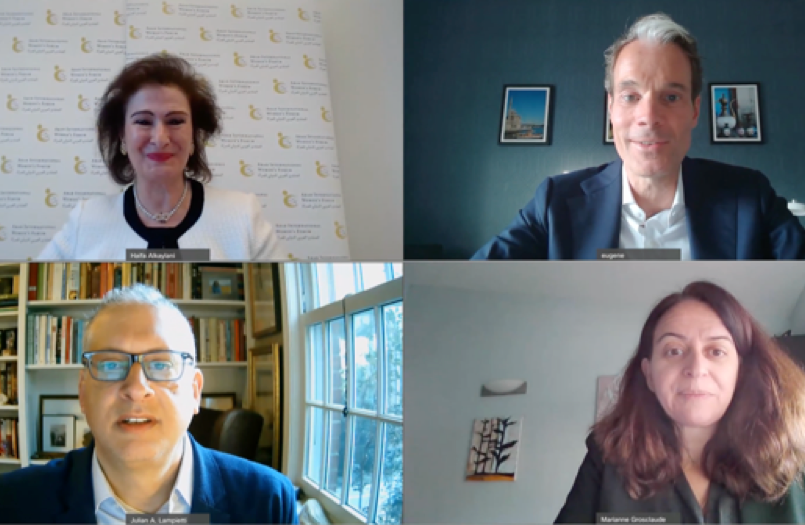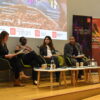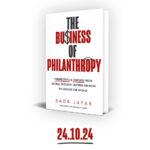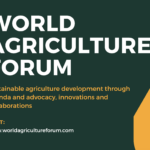AIWF and the World Bank collaborated on 24 February 2021 on a key virtual event of the AIWF 2021 Program, ‘What’s Cooking: Digital Transformation of the Agrifood System’, as AIWF’s first virtual event for 2021 in our 20th Anniversary year
Julian Lampietti, Practice Manager of the Global Engagement unit of the Agriculture and Food practice at the World Bank, launched the webinar by welcoming all speakers and panelists from AIWF, PepsiCo and the World Bank, and shared that the World Bank is gathering its efforts to bring digital technology and women together in order to change agriculture practices in the MENA. Julian, in his inaugural remarks, emphasised: “The food system is not fit for purpose at this stage; today, our food system is costing us more than it is producing in economic terms. The planet is feeding 8 billion people, but the environmental social poverty and health costs are rising more rapidly.”
Haifa Al Kaylani, President and Founder of AIWF, noted that digital technologies are accelerating transformation in the agri-food industry. The role of digital agriculture is in improving inclusion, equity, and environmental sustainability and food systems, and the important role that governments institutions, farming communities and private sector play is in promoting a sustainable future for agriculture that will really put people and planet first before profit. Haifa emphasised that “now is the time to work collaboratively and collectively to successfully adopt sustainable digital agriculture solutions that have the power to create a revolution in our global food systems, improve resilience and security of food and water, empower and develop the human talent behind the systems and behind the technology and ultimately put safeguards in place within our food systems that protect our planet from wasteful production, and unsustainable agritech methods.”
Marianne Grosclaude, Practice Manager for Agriculture and Food MENA, World Bank, the Co-chair of the event touched on the challenges that countries in the MENA region are facing as they try to recover from the crisis brought about by the COVID-19 pandemic while they also try to address longstanding challenges and issues that have impacted the sustainability of food systems in the region. These challenges particularly pertain to jobs, the ability of the food systems to provide a decent and gainful employment for young people, and also to provide economic opportunities for women.
Marianne introduced Ghada Elabedwho presented the findings of a World Bank publication,What’s cooking: Digital transformation of the agri-food system. The study shows that the food system is changing rapidly, thanks to the massive developments in digital technologies. She highlighted four key findings: the first being that COVID-19 created an opportunity to rethink the food system and the role of digital technologies and the second being related to data and the importance of paying attention to misuse of data ownership, control and security, which is particularly important when we think of small farmers, and women, who are usually disadvantaged and vulnerable.
The third point is related to the role of the public sector in and how it would accelerate the digital transformation of the system. And the fourth point related to possibilities on how to close the gender gap in the use of digital technologies. Ghada said: “Our food system generates up to 30% of greenhouse gases. And there is an overabundance of food, but at the same time, 820 million people are undernourished worldwide. So, the key motivation behind this work is how can we do to reverse this trend and make the food system achieve its sustainable development objectives?”
Ghada shared that digital technologies in agriculture can solve many of the classic issues that we encounter in the food system, like the lack of access to markets. “One of the first key benefits of data and digital technologies,” she said, “is increasing market efficiencies in the value chain. For example, the digital ecommerce platforms, where consumers can order their food and groceries directly from the farms are truly revolutionizing the agricultural and food sector. It has been found as well that digital agriculture can also improve equity through the inclusion of small farmers, women and marginalized population, and it has the potential to improve the environmental sustainability by reducing food waste, improving resource management and also rewarding environmentally friendly practices.”
“Additionally,” she said, “the study showcased the associated risks, the first risk being the lack of competition. Imagine a digital platform that collects a lot of information on consumers like Amazon, taking over the agri-food sector making it very difficult for new players to enter the market. The second risk that emerges from the use of digital technologies is the digital divide, because many people, including women and rural farmers, can’t access the technologies or have sufficient internet and don’t know how to use it.”
So how can the public sector ensure that the food system benefits from this digital revolution? And how can we mitigate the above risks? Ghada shared that the World Bank study had designed a three-layer framework. “The first foundational enablers are important (they are the nondigital enablers), infrastructure, basic roads, irrigation systems … and digital technologies like satellite imagery can help guide where and how much to invest in these nondigital enablers. The second pillar of this pyramid is digital infrastructure. This consists of phones, internet networks that would allow the use of digital technologies, so a purely private good and something that the private sector should provide. The third enabler is open data, and also the digital skills that are required to use this data. And here the report argues that policies need to support innovative ecosystems, or digital agriculture, through open data assets, digital platforms, entrepreneurship, digital payment systems, and digital skills.”
Lastly, Ghada noted that based on the most recent data, “men are 20% more likely to be online than women in this region which means that closing this gap is essential. Being offline now, especially in the agricultural sector means being excluded from valuable services and markets, and the digital divide could widen the existing gender inequality, pushing women and especially female farmers further into poverty”.
Eugene Williamson, CEO for Africa, Middle East and South Asia at PepsiCo, said that agriculture was “at the core of PepsiCo’s sustainability strategy and one of the six key planks”. He shared: “We believe that as one of the leading food and beverage companies, we actually have an opportunity to help transform the food system and also help transform how food is grown, produced, consumed and openly being disposable. We work with about 100,000 farmers across the fields that ranges from large scale commercial farmers to very small farms. Bringing the best of technology to those small farmers to help enable them to improve yields, improve their livelihoods. And the way we do that is obviously supporting them with some digital tools. These tools gives us opportunities to reduce, for instance, the use of water”, which was one of the data points that the World Bank study references.
Pramesh Shah, Global Lead for Digital Agriculture, World Bank, mentioned that many incubators and accelerators and agri-tech startups are emerging from the MENA region, with 69 very promising startups now in Abu Dhabi, Kuwait, Jordan, Lebanon, Morocco, and Tunisia, and 5600 very innovative startups in the agriculture field globally working on precision, agriculture, productivity, access to market, financial inclusion, and climate smart agriculture. He said: “If we invest in the innovation ecosystem, which enables startups, the private sector and the public sector to come together, then we will see very transformational changes.”
















